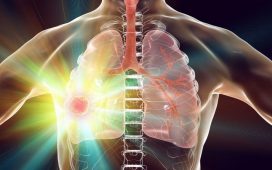Pharmacotherapy for alcohol use disorder linked to reduced incidence of hepatic decompensation in patients with cirrhosis
MONDAY, May 23, 2022 (HealthDay News) — Receipt of medical addiction therapy for alcohol use disorder (AUD) is associated with a reduced incidence of alcohol-associated liver disease (ALD), according to a study published online May 20 in JAMA Network Open.
Augustin G. L. Vannier, from Massachusetts General Hospital in Boston, and colleagues conducted a retrospective cohort study to examine whether medical addiction therapy was associated with an altered risk for developing ALD in patients with AUD. The cohort included 9,635 patients with AUD (60.4 percent male; mean age, 54.8 years).
The researchers found that 11.8 percent of patients had ALD and 40.5 percent received medical addiction therapy. Medical addition therapy for AUD was associated with a reduced incidence of ALD in multivariable analyses (adjusted odds ratio [aOR], 0.37). The association was observed for naltrexone, gabapentin, topiramate, and baclofen (aORs, 0.67, 0.36, 0.47, and 0.57, respectively). In patients with cirrhosis, pharmacotherapy for AUD was associated with a reduced incidence of hepatic decompensation (aOR, 0.35), including naltrexone and gabapentin (aORs, 0.27 and 0.36, respectively). The association persisted even with initiation of medical addiction therapy after cirrhosis diagnosis (aOR, 0.41).
“Prospective randomized clinical trials are warranted to conclusively assess the benefits of both U.S. Food and Drug Administration-approved and off-label AUD pharmacotherapy as prophylaxis and treatment for ALD,” the authors write.
Copyright © 2022 HealthDay. All rights reserved.








